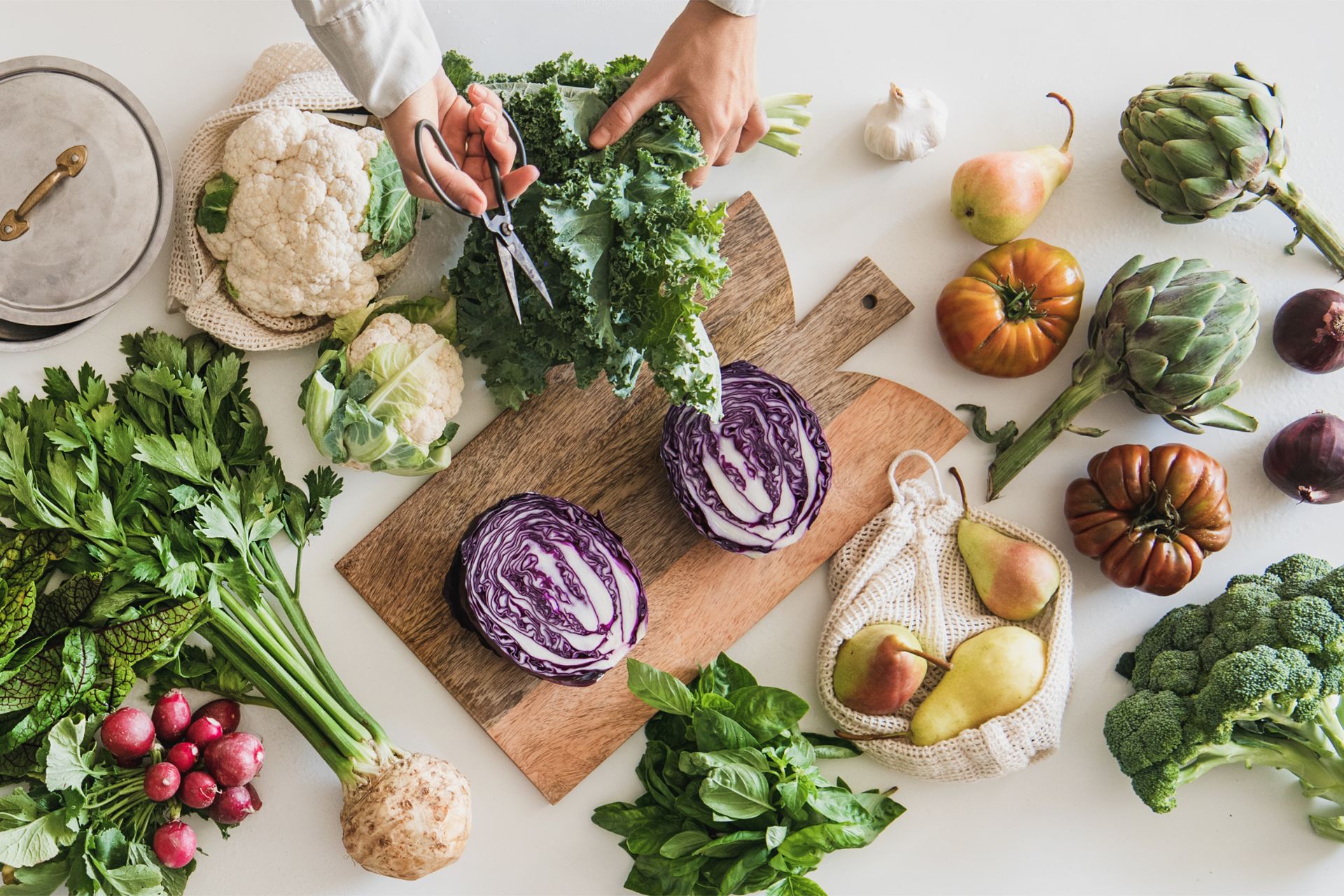A plant-based diet is one which consists mostly of plant-based foods including fruit, vegetables, legumes, nuts, seeds and grains. This includes both vegetarian and vegan diets, although other types of eating plans, including pescatarian and traditional Mediterranean diets, may also be considered plant-based.
When it comes to your health, research suggests there are many reasons to go plant-based.
- Plant-based diets are typically lower in saturated fat, contain no or less processed and red meats and are higher in dietary fibre and phytochemicals, all of which can benefit our health and reduce chronic disease risk.
- Plant-based diets have been associated with a reduced risk of common chronic diseases, such as cardiovascular disease, obesity, type 2 diabetes and some types of cancer.
- Plant foods including fruits, vegetables, wholegrains, legumes, nuts and seeds are important foods for building a healthy gut microbiome, which can affect our overall health and chronic disease risk.
Even if you are not quite ready to go completely meat free, just cutting down on red meat and incorporating more plant-based meals will provide health benefits. It can also benefit the environment.
However, going plant-based isn’t just about cutting out meat. A plant-based diet should contain a range of plant foods, including:
- Legumes such as lentils, chickpeas and dried or canned beans
- Soy foods such as tofu, tempeh, soybeans and edamame
- Wholegrains such as rolled oats, quinoa, brown or black rice, freekeh, burghul, barley and buckwheat
- Nuts and seeds
- Fruits and vegetables -aim for a variety of types and colours
Aim to balance your plate at mealtimes with vegetables or salads, wholegrains and plant protein (legumes or soy foods). Plant proteins are particularly important to include if you are cutting out all animal foods as they are important sources of protein, iron and zinc. And be aware that there is now an increasing range of processed nutrient-poor plant-based or meat-free foods, which are best to avoid or keep for special occasions. To reap the health benefits, focus on a whole-food plant-based diet. Finally, if you are cutting out all animal foods, it is important to supplement with vitamin B12 as this vitamin is only found in animal foods.
A great way to start is by adopting Meat-Free Mondays and then gradually building in more plant-based meals over time. Or, if you are ready to go all-in, consider trying Veganuary – visit Veganuary for more details and to register.
References:
Craig WJ, Mangels AR, Fresán U, Marsh K, Miles FL, Saunders AV, Haddad EH, Heskey CE, Johnston P, Larson-Meyer E, Orlich M. The Safe and Effective Use of Plant-Based Diets with Guidelines for Health Professionals. Nutrients. 2021 Nov 19;13(11):4144. doi: 10.3390/nu13114144. PMID: 34836399; PMCID: PMC8623061.
Turner-McGrievy GM, Davidson CR, Wingard EE, Wilcox S, Frongillo EA. Comparative effectiveness of plant-based diets for weight loss: A randomized controlled trial of five different diets. Nutrition. 2015;31(2):350-358.
Harland J, Garton L. An update of the evidence relating to plant-based diets and cardiovascular disease, type 2 diabetes and overweight. Nutr Bull. 2016;41(4):323-338.
Dinu M, Abbate R, Gensini GF, Casini A, Sofi F. Vegetarian, vegan diets and multiple health outcomes: A systematic review with meta-analysis of observational studies. Crit Rev Food Sci Nutr. 2017;57(17):3640-3649.


